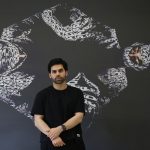News Briefs | Web Exclusive
Siddaramaiah Suggests Vaccine Link in Hassan Deaths, Scientists Push Back
Government hospitals in Karnataka recorded about 7,000 heart attack deaths between January and May, but the recent cluster of 23 deaths in Hassan has drawn unusual public attention
 Open
Open
 Open
05 Jul, 2025
Open
05 Jul, 2025
Karnataka Chief Minister Siddaramaiah has called for an expert inquiry into a series of sudden cardiac deaths in Hassan district, where, over the course of 40 days, 23 people have died, many under the age of 50, some as young as 19. One was a 27-year-old woodworker, another a 58-year-old college lecturer who collapsed while drinking tea. Several of the victims died in their sleep, at home, or during routine activity, with no known history of heart disease.
The Chief Minister then posed a question. Could the deaths, he asked on social media, be connected in any way to the COVID-19 vaccination campaign? He referred specifically to the “hasty approval and distribution” of vaccines during the pandemic, and suggested that an expert investigation was needed to restore public confidence. The phrasing was speculative, even cautious. But the implication, that the vaccines might have caused fatal heart attacks, was enough to draw immediate backlash.
Biocon founder and chairperson Kiran Mazumdar-Shaw responded publicly, calling the suggestion “factually incorrect” and warning that such remarks “contribute to misinformation.” The vaccines, she argued, had undergone extensive clinical trials and had saved millions of lives. Her response was swift, unambiguous, and consistent with the prevailing scientific consensus: there is no verified causal link between COVID-19 vaccines and a rise in sudden cardiac deaths.
Siddaramaiah defended his statement. “When families lose their young members without warning,” he wrote, “seeking clarity is not unscientific.” He announced the formation of a five-member expert committee headed by Dr CN Manjunath and Dr KS Ravindranath. The panel was asked to submit a report within ten days. Its task is to review hospital records, autopsy reports, and family interviews, and determine whether the deaths represented a significant deviation from historical patterns, or a tragic convergence of pre-existing risks.
At the heart of the episode lies a familiar tension: how governments respond to public fear in the shadow of scientific authority. As of now, India’s Ministry of Health, the Indian Council of Medical Research (ICMR), AIIMS, and the World Health Organization have all reiterated that no causal link has been established between COVID-19 vaccination and sudden cardiac deaths. A multi-centre study by ICMR, conducted across 47 hospitals between October 2021 and March 2023, examined nearly 800 such deaths in adults aged 18 to 45 and found no statistically significant association with vaccination status. A separate study by AIIMS, based on medical audits of “brought dead” cases in Delhi, concluded that the leading cause of sudden death remained atherosclerotic heart disease, not any post-vaccine complication.
International data aligns with this. Myocarditis and pericarditis, known to occur in rare cases among adolescent males following mRNA vaccination, have an incidence of roughly 1 to 5 per 100,000. These cases are typically mild and self-resolving. In India, the two most widely administered vaccines, Covaxin and Covishield, are not mRNA-based, and surveillance through the AEFI (Adverse Events Following Immunisation) framework has found no evidence of vaccine-attributable cardiac fatalities.
In Hassan, five of the deceased were under 25. Eight were between 25 and 45. Many died outside hospital settings. Few had documented heart conditions. In a larger city, such deaths might have been scattered across months and neighbourhoods. In Hassan, a district with limited tertiary care and close-knit communities, the deaths formed a pattern that was difficult to ignore. Local residents, hearing of yet another neighbour lost without warning, turned instinctively to pattern-seeking. And in the long tail of the pandemic, vaccines, already politicised, became a plausible scapegoat.
In 2021, the sudden death of actor Puneeth Rajkumar from a massive heart attack had already become a flashpoint in this conversation. Though there was no medical link to vaccination, the event reignited debate about cardiac health in young Indians, and social media commentary often invoked the vaccine regardless of evidence.
Public health experts continue to urge caution in conflating correlation with causation. Between January and May this year, Karnataka recorded 6,943 heart attack-related deaths based on government hospital records, an average of roughly 1,388 deaths per month. In the same period, Hassan district reported 183 such deaths, averaging about 36 per month. The recent spate of deaths, then, is not a big divergence from previous numbers.
Dr CN Manjunath, now leading the Hassan probe, has said that India has seen a 9 to 10 percent increase in post-COVID cardiac complications, often linked not to vaccines but to the after-effects of asymptomatic infection, undiagnosed hypertension, diabetes, sedentary habits, and elevated stress. Hospitals in Bengaluru and Mysuru have reported a 20 to 30 percent rise in young patients presenting with cardiac symptoms. But these, too, may be expressions of slower epidemics, including pollution, processed food, and fragmented sleep.
This context matters. Siddaramaiah’s remarks were seen by some as political posturing, by others as empathy misjudged. Yet they may also reflect a deeper truth, that grief often runs ahead of science. When a healthy young person dies suddenly, it is not statistical reassurance the family seeks, but meaning. And the suggestion of a vaccine link, however flawed, offers a plausible narrative.
India’s vaccination campaign worked, in part, because people trusted their doctors, but also because their employers, religious heads, and governments told them to. To suggest now that even asking questions about vaccine safety is itself harmful can appear, as it often does in institutional India, as a refusal to listen. What the Hassan episode reveals is not a failure of science, but a challenge to it. The vaccines are safe. The evidence is solid. The findings are consistent. And yet, when a death is unexplained, it can become, however unfairly, a referendum on institutional trust. The goal, then, must not be only to restate the facts, but to speak them with care. Science, to be persuasive, must not only be right. It must be heard.
/wp-content/uploads/2025/06/Insider2.jpg)

/wp-content/uploads/2025/07/Cover_Dalai-Lama.jpg)











More Columns
From Entertainment to Baiting Scammers, The Journey of Two YouTubers Madhavankutty Pillai
Siddaramaiah Suggests Vaccine Link in Hassan Deaths, Scientists Push Back Open
‘We build from scratch according to our clients’ requirements and that is the true sense of Make-in-India which we are trying to follow’ Moinak Mitra